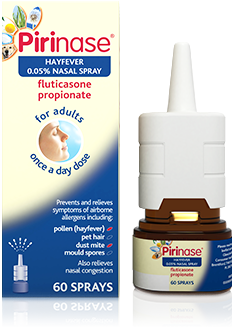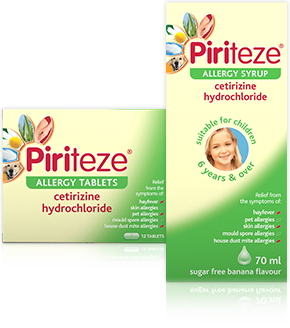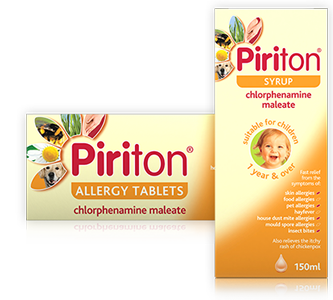The pollen predicament
With the weather as it is, you'd be forgiven for not realising that it's almost Summer. Whilst we might be dreaming of long days spent lounging in the sun, the dream can all too quickly become a nightmare for hay fever sufferers.
What is hay fever?
In a nutshell (or maybe that should be a seedpod), hay fever is an allergy to pollen. During spring/summer, pollen particles get carried into the air and when they come into contact with the mouth, nose, eyes and throat, it can trigger an allergic reaction. The symptoms of hay fever are part of this response and can vary in severity.
Hay fever is one of the most common allergies and can present itself at any age, although you're more at risk if you have a family history of asthma, allergies or eczema. Fortunately, hay fever does not pose a threat to your longterm health and the symptoms are fairly easy to manage.
What are the symptoms?
The symptoms of hay fever can be mild or severe and will vary in different people. Traditionally, symptoms include a runny nose, sneezing, and itchy/watery eyes. Less common symptoms tend to only present themselves in severe cases, but these can include face pain, sweats and headaches,
How can I treat it?



images courtesy of PiriAllergy
There is currently no longterm cure for hay fever available, although there are easy ways to reduce symptoms and make hay fever more manageable. Products from the Piriton, Pirinase and Piriteze ranges are great for relieving the symptoms of hay fever. From traditional tablets and syrups that offer all-day allergy relief to one-spray nasal sprays that promise to protect you from that pesky pollen for up to 24 hours; the Piri brand has something for everyone.
There are also preventive steps you can take to reduce the effects of hay fever. The Met office release a daily pollen report which tells you the predicted pollen count for the upcoming days, if the pollen count is estimated to be above 50 then it may be worth staying indoors or at least preparing yourself by taking antihistamines before going outside.
It could also be beneficial to invest in wraparound sunglasses, particularly for driving as this will prevent the pollen from getting to your eyes if you have the windows down. Showering and changing your clothes after being outside can also help, as this will remove the pollen from your body.
If you have hay fever, then you should also avoid drinking alcohol. Whilst we all enjoy a leisurely day in the beer garden, unfortunately, alcohol contains histamine, the chemical that triggers allergy symptoms.
If you start preparing now, hay fever needn't ruin your summer, speak to a pharmacist today to find out more about hay fever relief.